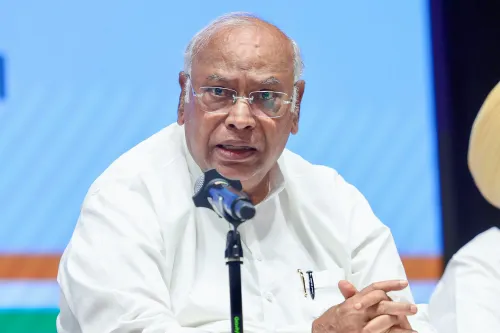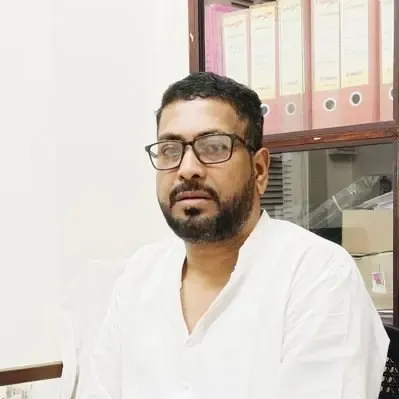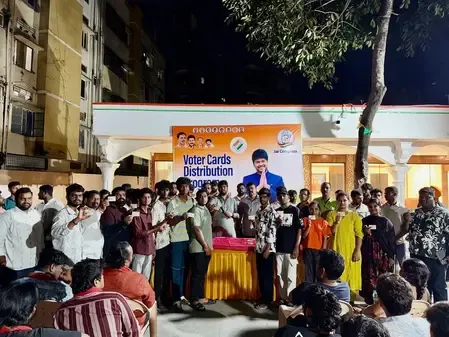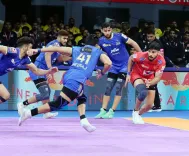Can Elected Governments Be Subject to the 'Whims of Governors'?
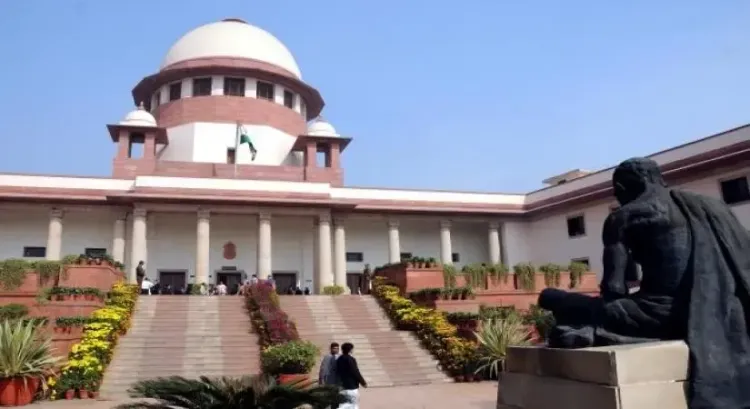
Synopsis
Key Takeaways
- The Supreme Court is reviewing the balance of power between elected governments and Governors.
- Article 200 provides Governors with multiple options for handling Bills.
- Indefinite withholding of assent by Governors could undermine democratic processes.
- Judicial review of Presidential actions may be gaining traction.
- Consultation with the Supreme Court is suggested for constitutional matters.
New Delhi, Aug 20 (NationPress) The Supreme Court stated on Wednesday that permitting a Governor to withhold assent to Bills without returning them to the state Assembly could place the operations of an elected government at the "whims and fancies" of a Governor.
A Constitution Bench, led by Chief Justice of India (CJI) B.R. Gavai, was reviewing the reference made by the President under Article 143 of the Constitution following the apex court's ruling in the Tamil Nadu Bills case.
In May, President Droupadi Murmu requested the Supreme Court to provide guidance on the constitutional options available to a Governor when a Bill is presented under Article 200 of the Constitution.
Before the special 5-judge Bench, which included Justices Surya Kant, Vikram Nath, P.S. Narasimha, and Atul S. Chandurkar, Solicitor General Tushar Mehta, representing the Union government, argued that a Governor can permanently withhold assent to a Bill without returning it to the state legislature for reconsideration.
SG Mehta stated that under Article 200, the Governor has four choices: to grant assent, withhold assent, reserve the Bill for the President's consideration, or return the Bill to the Assembly.
He added that if a Governor withholds assent, there is no requirement to return the Bill to the state Assembly for a second look.
Responding to this, CJI Gavai remarked, "Would we not be giving total powers to the Governor to sit in appeal? The government elected with the majority will be at the whims and fancies of the Governor," suggesting that such an understanding of the Governor’s powers might enable indefinite delays in legislation.
When the Solicitor General mentioned discussions from the Constituent Assembly on the role of Governors in India's federal structure, the Supreme Court questioned whether this esteemed position had, in practice, adhered to the Constituent Assembly's vision of fostering harmony with elected state governments.
"You are free to review the debates, but evaluate if the expectations have been fulfilled," CJI Gavai advised Mehta, highlighting that the exercise of Governors’ discretionary powers has historically led to numerous legal disputes.
Emphasizing that constitutional interpretation should not be influenced by the "worst examples", the law officer argued that the Governor's right to withhold assent is intended to be utilized infrequently and only in exceptional cases, such as when a Bill is unconstitutional, repugnant, or violates fundamental rights.
The special 5-judge Bench will proceed to hear the case titled "In Re: Assent, Withholding or Reservation of Bills by the Governor and the President of India" on Thursday.
In April 2025, a two-judge Bench of the Supreme Court, exercising its inherent powers under Article 142, resolved a deadlock between the Tamil Nadu government and Governor R.N. Ravi regarding the delay in granting assent to Bills passed by the Assembly.
It declared that Governor Ravi's refusal to sanction 10 Bills in Tamil Nadu was both "illegal and arbitrary" and established a three-month deadline for Presidential and gubernatorial approval of Bills rerouted by the legislature.
"The President is mandated to make a decision on the Bills reserved for his consideration by the Governor within three months of receiving such a reference," stated a Bench led by Justices J.B. Pardiwala and R. Mahadevan.
Should there be no decision within this period, states are permitted to file writ petitions seeking a writ of mandamus against the President, clarified the Pardiwala-led Bench.
The apex court used its powers to declare the 10 withheld Bills as deemed to have been assented to on the date they were submitted to the Governor after being re-evaluated by the state legislature.
It asserted that once a Bill is returned, re-passed by the legislature, and resubmitted to the Governor, it cannot be reserved for the President’s consideration.
Furthermore, the President is now obliged to provide explanations for their decisions, which must be communicated to the state government.
Additionally, it suggested that the President should consult the Supreme Court on Bills concerning constitutional matters.
This judgment seemingly placed Presidential actions under judicial review by instituting a three-month deadline for granting assent to Bills, encouraging the President to seek a reference under Article 143 of the Constitution.
Article 143 allows the President to invoke the advisory jurisdiction of the Supreme Court on matters of public significance or constitutional interpretation.
In the reference, President Murmu queried the apex court: "Is the Governor bound by the aid and advice provided by the Council of Ministers while exercising all available options when a Bill is presented under Article 200 of the Constitution of India?"
Moreover, the Presidential reference probed whether the exercise of constitutional discretion by the Governor regarding Bills is justiciable, given that Article 361 imposes an absolute bar on judicial review concerning gubernatorial actions.
"In the absence of a constitutionally-specified timeline and the manner of exercising powers by the President, can timelines be imposed and the manner be prescribed through judicial orders for the exercise of discretion by the President under Article 201 of the Constitution of India?" the President urged the top court to deliberate and provide its opinion.

